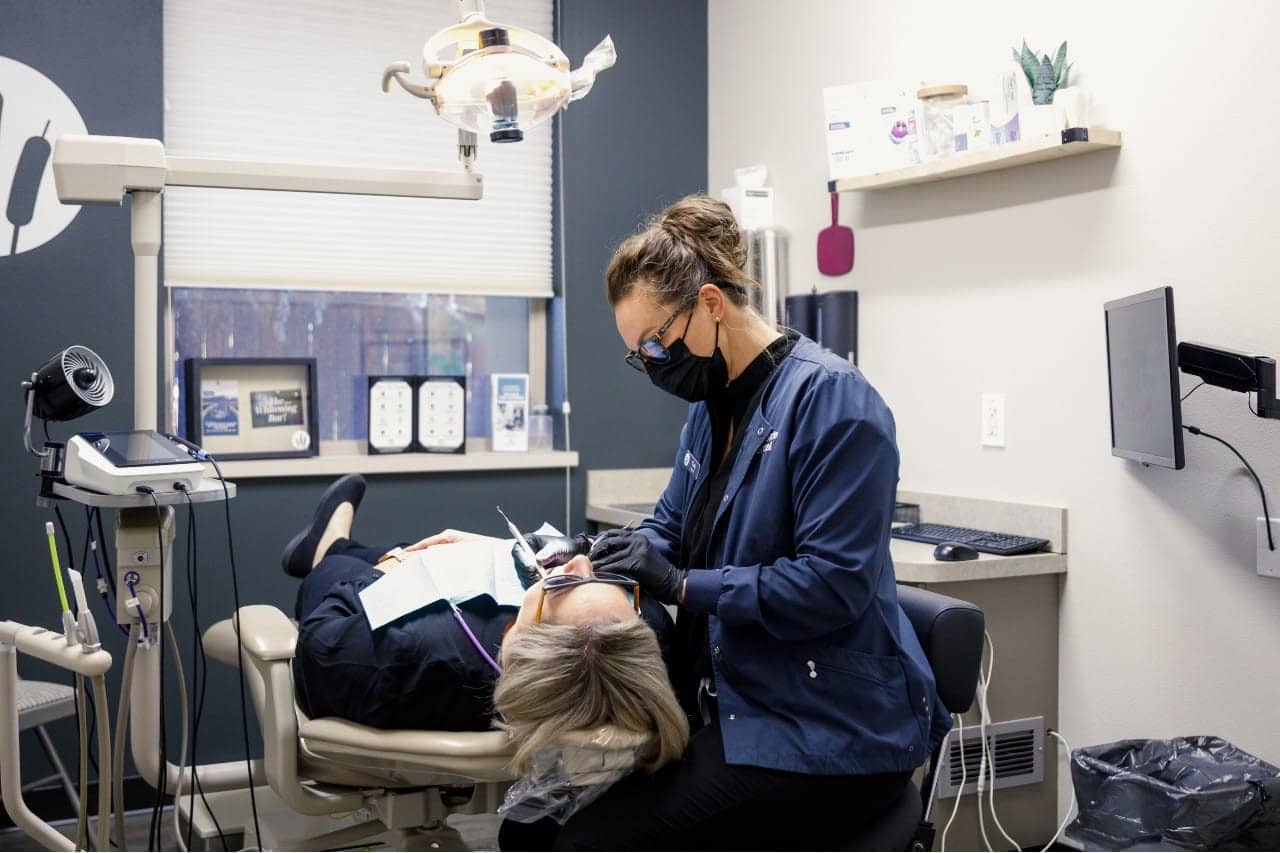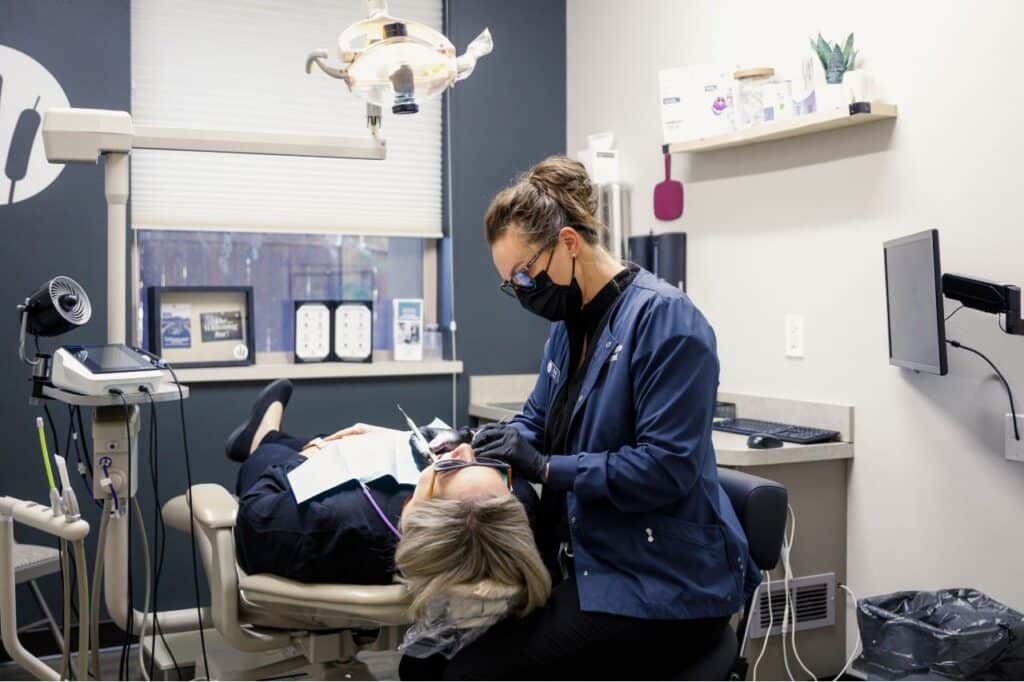When a patient comes into our office for the first time, before any treatment can be done, they first need to be examined to see what treatment is appropriate for their specific dental condition. X-rays will be taken and a health history will be reviewed. In addition to seeing the dentist for a complete dental exam, the patient will also receive a periodontal exam by one of our hygienists. During this exam, the hygienist will determine the overall health of a patient’s periodontium – the gums and bone (the tissues that support and surround the teeth). “Peri” means around, and “Dontal’ refers to the teeth. Maintaining the health of the periodontium is a vital part of overall dental health and keeping your teeth for a lifetime.
The primary treatment to ensure healthy gums and bone are consistent dental cleanings. After the periodontal exam, the hygienist will consider periodontal depths, appearance of the tissue, general health, and level of plaque and tartar buildup. They will then make a treatment plan for cleaning the teeth. Depending on all of the previously mentioned factors, a patient may need a basic cleaning or a deeper cleaning. If there is little tartar buildup and the periodontium is in healthy condition, a basic cleaning will be scheduled. These usually take about one hour and include scaling (scraping with dental instruments), a polish, and floss. If the patient’s periodontium is diseased (if they have periodontal disease), and/or their tartar buildup is heavy, a deeper cleaning will be needed. With these cleanings, the tartar has built up underneath the gums in the diseased areas. The tissues might be tender and may need to be numbed before the cleaning can begin. If a patient hasn’t had their teeth cleaned in a while, or they smoke, the tartar can be very difficult to remove and in these cases extra equipment is needed to completely remove all of the buildup. For all of these reasons, deeper cleanings take longer than basic cleanings, and may even need to be completed over two or more appointments.
When a person has periodontal disease, more frequent cleanings are needed. Periodontal readings are taken on a regular basis and the disease is monitored closely. Patients may need cleanings every three to four months in order to keep the degeneration of the periodontium under control. At each cleaning your hygienist will evaluate the health of your tissues and instruct you in any way they can to help you improve your homecare and the health of your teeth. Helping our patients understand the importance of healthy gums and bone is something that we strive for here at Creekside. We take the time to educate our patients about their needs and treatment and welcome any questions that you may have about our recommendations.
